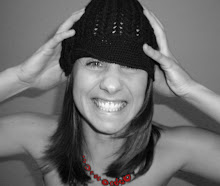This was a joy to read :) Chicagoland is making a difference.
Green, fair trade gifts grow more popular this holiday season
December 8, 2008Chicago Tribune Ann Meyer
Forget slashing prices. What picky shoppers want this holiday season are gifts with meaning.
So merchants are scouting for items that are environmentally or socially responsible, whether that means produced locally, often with recycled material, or made in accordance with fair trade standards, which require that workers are paid a living wage in safe conditions.“We look at what the company is about. What’s their mission statement? Do they help the Earth? Do they help women?” said Jayne Ertel, co-owner of Team Blonde Jewelry in Forest Park.
At a time when many retailers are reporting sales declines, some green merchants are bucking the trend. Team Blonde projects sales of about $450,000 this year, up 8 percent from a year ago.
“I’m doubling my sales this year,” said Maureen Dunn, co-owner at Mata Traders, a Chicago-based wholesaler of fair trade goods that sells to 70 shops throughout the nation.
The hot seller this holiday season is a $12 scarf made from repurposed sari material. Dunn has added winter clothing and jewelry to her line while being careful to keep prices down.
“If something’s too expensive, I have to figure out how to change the design to make it cheaper so I can compete,” Dunn said, noting that she designs the products that are made by women’s cooperatives in India. Besides wholesale, Mata Traders has a retail booth at the Andersonville Galleria.
Sales of green products are climbing because consumers increasingly are considering where and how a product is made, said Aimee Heilbrunn, co-founder of EcosceneInc.com, a Web site that reviews green products.
“People automatically think if it’s organic or green, it’s going to be more expensive, but that’s not necessarily the case. You can find some good alternatives that aren’t going to break the bank,” Heilbrunn said.
Heilbrunn conceived Ecoscene a year ago, after searching for an environmentally friendly dog bed. “I thought, if I’m a normal consumer looking for these items, there must be other consumers out there who are trying to make better choices,” she said.
Nearly one in four Americans, representing more than $200 billion in annual sales, are environmentally and socially conscious consumers, Heilbrunn said, citing figures from the Natural Marketing Institute.
“Consumers are starting to make choices that are cognizant that we are part of a global marketplace,” said Cheryl Middaugh, president of Mora & Mahogany, a company that helps clients raise money by selling fair trade products.
Mora & Mahogany plans to launch a catalog of fair trade products next year for schools and non-profit groups to use for fundraising.
It was that type of fundraiser at a Unitarian Church two years ago that inspired Cindy Pardo and two friends to launch The Fair Trader, a store in Hyde Park that opened in September 2007. “So many people in the neighborhood said, ‘Gee, I wish we could shop this way all the time,’ ” she recalled.
The store stocks only certified fair trade merchandise, including home decor, jewelry, apparel, paper and bath and body products. Most items range from $25 to $75.
Pardo is convinced the growing awareness of where products come from and how they are made is making a difference. More foreign factories are adopting fair trade principles because they know it will help them sell their products, she said.
Shoppers also feel good supporting local artisans, said Nadeen Kieren, shopkeeper at GreenSky, an Andersonville boutique offering green and one-of-a-kind gifts and home decor. “If people can find something functional or decorative that has a story behind it, they enjoy spending their money.”
About three-quarters of the merchandise Kieren stocks is from the Midwest, she said, though she also carries some international fair trade products. Products range from frames created from pencils, birdhouses made from reclaimed barn wood, repurposed woolens made into hats and scarves and jewelry from Michigan stones, she said. Prices range from $2 for a fair trade chocolate bar from Divine Chocolate to $70 for a sea grass handbag.
To keep up with demand at Team Blonde Jewelry, the business recently expanded to a 3,200-square-foot location, where the owners took care to reuse two-by-fours, wood moldings and drywall screws, said co-owner Heidi Vance, who drives a car that runs on biofuel. The new space includes a jewelry-making studio, where Vance and Ertel make items from recycled material, leaded glass from vintage chandeliers, typewriter keys and Scrabble tiles. Customers also can use the studio to make jewelry.
Vance and Ertel, trained in law and accounting, respectively, gave up professional careers to grow Team Blonde. Initially, they made most of the jewelry the store carried. As they found distinct items at gift shows that appealed to their environmental consciousness, they broadened their merchandise mix.
Products range from Vy & Elle handbags made from recycled vinyl billboards to Zulu grass necklaces from the Kenya-based Leakey Collection, which creates employment opportunities for women. Perennial favorites also are soap and bath salts from the Enterprising Kitchen, a Chicago non-profit that employs disadvantaged women.
“We like things that are unpredictable,” Vance said. “There’s always something new to look at. It gives people a reason to come back.”
mindingyourbiz@gmail.com
rise 34
14 years ago




No comments:
Post a Comment